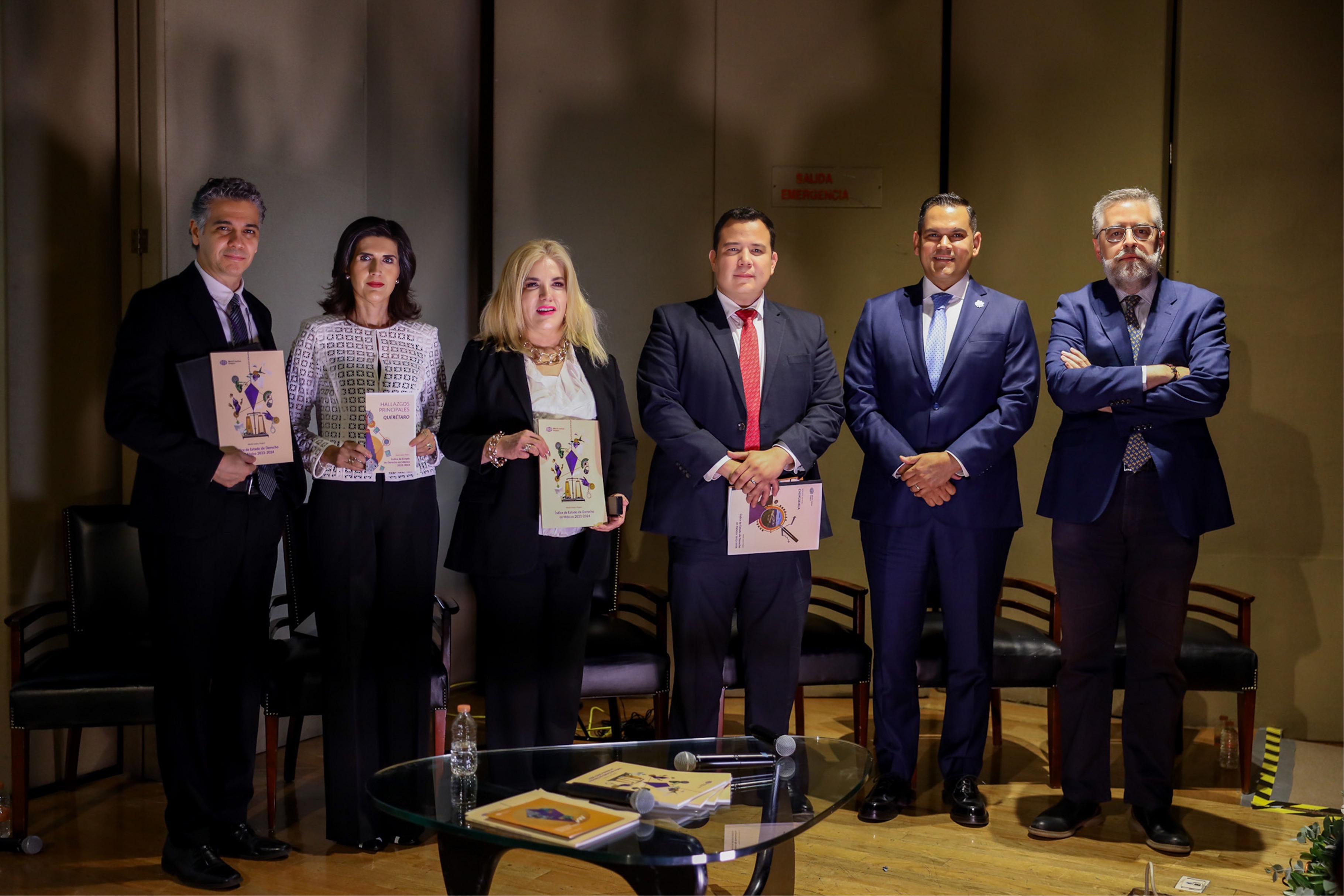

Last month, in Mexico City’s historic center, a diverse group of state and federal officials took the stage to explore what’s working to improve the rule of law in Mexico.
Addressing an audience of policymakers, donors, advocates, and business leaders, the officials discussed progress such as reduced corruption in the state of Sinaloa, safer communities in Chihuahua, greater access to justice in Querétaro, enhanced regulatory enforcement in Sonora, and improved labor protections across the country.
The occasion was the World Justice Project’s release of its sixth annual Mexico States Rule of Law Index. Overall, the 2023-2024 Index shows that Mexico’s below average rule of law performance remains largely stagnant. But the recent launch event and the officials present on stage highlighted how the Index’s state-level data is not only capturing pockets of progress, but helping power the reform efforts making them possible.
State efforts pay off
“The Index helps us see the results of the experiments we’re undertaking in trying to innovate and improve public service,” said Guillermo Noriega, who leads the state of Sonora’s general comptroller agency.
Since the World Justice Project (WJP) first published Mexican subnational rule of law data in 2018, Sonora and Guanajuato, have made significant strides in regulatory enforcement. This index factor is critical to attracting business investment, as well as protecting people’s quality of life through effective environmental policies and more.
During the same six-year period, the Index shows that Querétaro is the Mexican state that has made the most rule of law progress. It has strengthened limits on government power, advanced fundamental human rights, and improved the delivery of both civil and criminal justice.
“Through the sub-factors of the Index, we have been able to improve areas that we had not previously contemplated, all in order to deliver better results to citizens,” Mariela Ponce Villa, president of Querétaro’s judicial branch, said at the Index launch event.
The head of the state of Chihuahua’s public safety agency, Gilberto Loya, said collaboration with local governments and police forces was key to making communities safer and progress captured by the Index.
“I appreciate this initiative and, above all, the fact that this Index is made public,” he said, “because in the end, it tells us how much we’ve progressed and where we can go from here.”
Partnering with rule of law champions
Over the six years producing the Mexico States Rule of Law Index, the World Justice Project has partnered with dozens of state officials, as well as federal agencies and civil society and business leaders across the country to deliver locally and thematically relevant insights.
Today, the Index is used to benchmark and evaluate progress by public agencies, programs, and reform efforts in 30 of 32 Mexican states as well as the federal government. The head of federal labor department was among the launch event speakers, and Mexico’s president elect, Claudia Sheinbaum, has designated the WJP Index as the benchmark for a variety of justice proposals in the policy platform for her incoming administration.
“It’s incredible to see how rule of law champions across the country have leveraged our data to advance meaningful reforms across a broad range of policy areas,” said Alejandro González, who led WJP’s Mexico office before assuming a global role as WJP’s chief engagement officer earlier this year.
“Thanks to the Index, we can see how a number of these critical reform efforts are already bearing fruit,” he added.
A blueprint for impact
With its impact continuing to grow, WJP’s work on the Mexico index has served as a blueprint for its global strategy to advance the rule of law in other regions and countries. Nonetheless, Gonzalez acknowledged that his country of origin has a long road ahead.
“Every state in Mexico continues to experience serious rule of law challenges, and those, too, are reflected in our data,” he said.
“But, as we’ve heard from the officials at our launch event and beyond, our Mexico States Rule of Law Index is an effective tool for designing and monitoring reforms to improve security, reduce corruption, make government more open, and provide the Mexican people with greater access to justice.”






